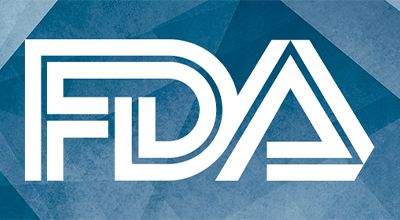FDA OKs Relatlimab/Nivolumab for Unresectable or Metastatic Melanoma
The doublet regimen of relatlimab/nivolumab has been approved for adults with unresectable or metastatic melanoma.

The FDA has approved a fixed dose of relatlimab plus nivolumab (Opdualag) on the indication of unresectable or metastatic melanoma for adults of at least 12 years of age and who weigh at least 40 kg.1
This regulatory decision is supported by findings from the phase 2/3 RELATIVITY-046 trial (NCT03470922), which revealed that patients with unresectable or metastatic melanoma who received the combination as a frontline treatment experienced a doubled median progression-free survival (PFS) compared with a cohort who received nivolumab alone.
The median PFS in the experimental and control arms were 10.12 months (95% CI, 6.37-15.74) and 4.63 months (95% CI, 3.38-5.62), respectively (HR, 0.75; 95% CI, 0.62-0.92, P = .0055). Furthermore, at a 12-month follow-up, the PFS rate between the 2 cohorts was 47.7% % (95% CI, 41.8%-53.2%) and 36.0% (95% CI, 30.5%-41.6%), respectively.2
“Since the approval of the first immune checkpoint inhibitor more than 10 years ago, we’ve seen immunotherapy, alone and in combination, revolutionize the treatment of patients with advanced melanoma,” said F. Stephen Hodi, MD, director of the Melanoma Center and the Center for Immuno-Oncology at Dana-Farber Cancer Institute. “Today’s approval is particularly significant, as it introduces an entirely new combination of two immunotherapies that may act together to help improve anti-tumor response by targeting two different immune checkpoints — LAG-3 and PD-1.”
Approximately 18% of patients receiving this combination needed to discontinue use throughout the trial because of adverse events (AEs). In addition, 43% of patients had their treatment interrupted because of a treatment-related AE. Thirty-six percent of patients experienced a serious AE.
The most frequent serious AEs included adrenal insufficiency (1.4%), anemia (1.4%), colitis (1.4%), pneumonia (1.4%), acute myocardial infarction (1.1%), back pain (1.1%), diarrhea (1.1%), myocarditis (1.1%), and pneumonitis (1.1%). The 3 fatal AEs included hemophagocytic lymphohistiocytosis, acute edema of the lung, and pneumonitis patients.
Overall, the most common AEs included musculoskeletal pain (45%), fatigue (39%), rash (28%), pruritus (25%), and diarrhea (24%).No new safety signals were reported compared with nivolumab alone. However, 18.9% of patients receiving the combinations experienced grade 3/4 AEs compared with 9.7% in the nivolumab monotherapy arm. Furthermore, the number of patients who experienced drug related AEs and subsequently needed to discontinue treatment was 14.6% vs 6.7%, respectively.
The fixed dose will be administered every 4 weeks as a single intravenous infusion of 480 mg nivolumab and 160 mg relatlimab for adults or pediatric patients over the age of 12 who weigh at least 40 kg.
“I really do want to highlight the fact that we're very excited that this is the third checkpoint inhibitor after PD-1 and CTLA-4 to show clinical activity. It has been about a 10-year wait to find the third checkpoint inhibitor, and now we have a new agent to consider combining in different patient populations,” added Hussein A. Tawbi, MD, PhD, professor of the Department of Melanoma Medical Oncology at The University of Texas MD Anderson Cancer Center, in an interview with Oncology Nursing News®.
“It's going to be a regimen that I will use very regularly in lieu of single-agent anti-PD-1 for patients for whom I'm considering single-agent PD-1,” he said.
References
- US Food and Drug Administration approves first LAG-3-blocking antibody combination, Opdualag (nivolumab and relatlimab-rmbw), as treatment for patients with unresectable or metastatic melanoma. News release. Bristol Myers Squibb; March 18, 2022. Accessed March 21, 2022. https://bit.ly/3wk6PDx
- Tawbi HA, Schadendorf D, Lipson EJ, et al. Relatlimab and nivolumab versus nivolumab in untreated advanced melanoma. N Engl J Med. 2022;386(1):24-34. doi: 10.1056/NEJMoa2109970


